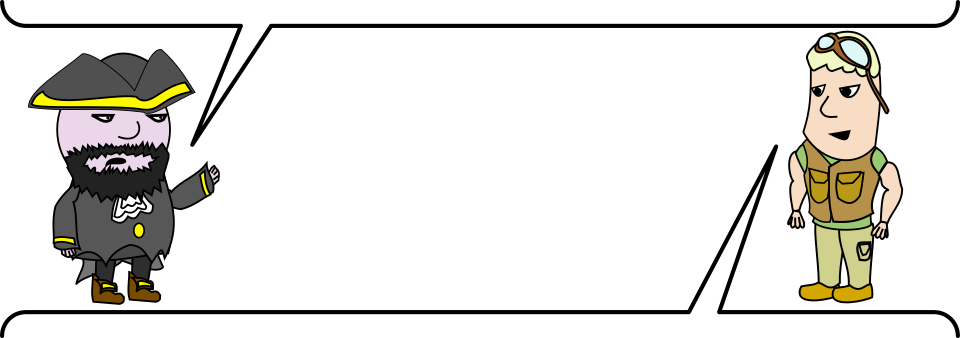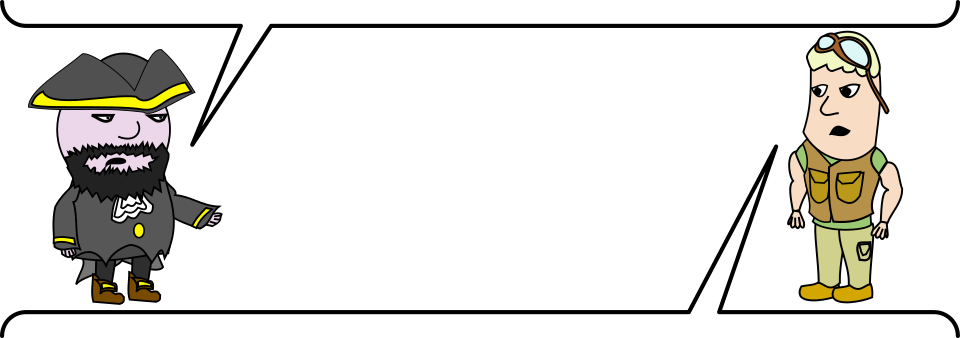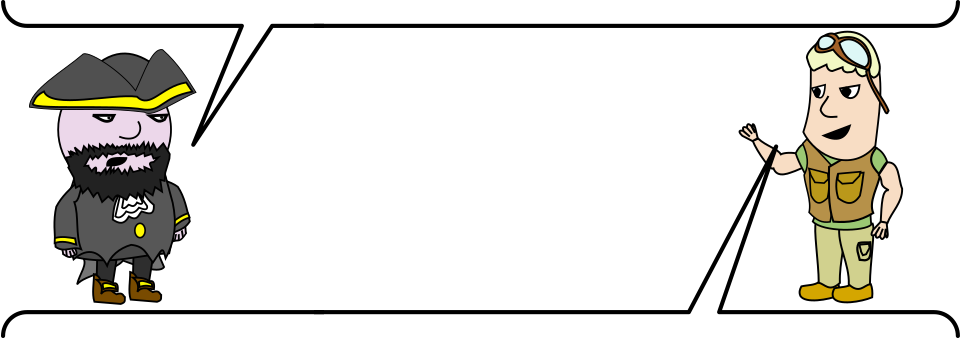The Opium Wars: The story of Great Britain getting China hooked on opium for profit
A Q and A featuring Meridiots Ol'Sandy and Sam
Meridians is a Newsletter and Podcast featuring real stories from history. Each week, we’ll explore a different topic connected in some way to the previous week’s topic.
Through this format, I hope to make connections through history across cultures throughout the world.
This week, I’m trying a bit of an experiment. I’m letting the Meridiots tell the story.
What are we talking about today, Sandy?
Well, Sam, this one’s a tragic tale. We’re talking about the Opium Wars in China and how they came to pass.
By the 18th century, Great Britain had stretched its trading empire across the globe. From Great Britain's colonies in the Americas to Africa, to India, to China, their reach for trade had no bounds. As a result, tea, silks, and other luxury goods were flowing out from China to Great Britain. So much so that it created a trade imbalance where Britain was buying more from China than they were selling. To maintain their economic dominance, Britain's government and the British East India Company decided to take measures to correct this imbalance. Trading opium with China was their answer.
If Britain had access to so many trade goods, why opium?
Opium was a highly profitable crop for the East India Company, and it was available in India, which was relatively 'nearby' as it were. But the real reason? The sinister reason they chose Opium? They knew it was highly addictive and would create its own demand.
What the heck! That's a horrible thing to do. What did the British people think of this?
After Opium was introduced in China and the word made its way back to England about the addiction and harm it was causing, there was severe moral outrage. Organizations formed like the Society for the Suppression of the Opium Trade, which campaigned and advocated for this trade practice to stop. It sparked debate in parliament but to no end. Over time, the outrage died down, except for in some religious circles where they considered the opium trade immoral. But, by and large, the criticism subsided.
What about the Chinese government? They couldn't have been happy about this.
They weren't. In the 18th century, China was controlled by the Qing dynasty, a government that ran as an absolute monarchy with an imperial court. In 1780, the Qing government issued an edict against the use of opium.
In 1796, Jiaqing ascended to the throne and made an outright ban on opium. The importation of opium was prohibited, and smoking opium was outlawed. The collection of opium taxes would then be removed, and the drug would essentially become illegal. Smoking opium would eventually come with a punishment of being beaten 100 times.
Ouch, so did the British stop importing after that? Let me guess… they didn't?
Britain and the East India Company didn't stop. The demand for opium was still present, so they used offshore boats as warehouses. These warehouses would help the British opium merchants from being detected by Chinese inspectors. They would also ship through intermediaries in Calcutta who were licensed to trade with China. Then, of course, bribery and good old-fashioned smuggling was also used. To make matters worse, in 1834, the British East India Company lost its monopoly rights with the British government to trade with China. This opened up the floodgates for all sorts of merchants who wanted to get in on the opium trade.
So, the opium crisis got worse? How did this lead to war?
Yes, by 1838, China's government was getting really tired of this opium problem. They started sentencing drug traffickers to death. Then, the following year, there was a concerted effort to seize opium imports at the main point of entry, Guangzhou. British merchants were forced to surrender 20,000 chests and sacks of opium, which were then publicly destroyed.
The British Superintendent of trade in China ordered all British merchant ships to flee the area and prepare for battle. Things began to escalate. The Chinese authorities besieged foreign opium dealers and blockaded Macau. The British issued an ultimatum on September 4, 1839, stating that if the British were not allowed to trade for food with locals in Kowloon, British ships would open fire.
So the ultimatum wasn't met, and war broke out?
Thats right. The first battle took place near the Pearl River Delta. British forces would clash with Chinese war junks.
Wait a sec.. what is a war junk? And what kind of military did China have at the time?
War junks were a type of Chinese sailing ship with high sterns designed for sailing coasts and up rivers. They were durable, with watertight compartments to avoid sinking. They served as floating fortresses for close-range combat. However, China hadn't experienced much in the way of war for quite some time. Their last major engagement was putting down the White Lotus Rebellion, which was nearly 40 years earlier. Meanwhile, the British had seasoned veterans and a massive naval fleet to draw from. They were highly experienced and capable of fighting a war at sea. By the 1840s, Britain was using Steamships, giving them a tactical advantage. By 1841, The paddle wheel-driven steamship Nemesis was a main weapon of force on the British side during the war. Overall, Britain just had superior weapons and tactics available to them.
The British are really sounding like bullies. Were they like this all over the world? Pushing other nations around?
They sure were. During this time period, the British Empire was a dominant force in the world. Their technology and trade wealth gave them power, power that they clearly saw as a means to maintain that wealth. This is much of the reason the American colonies rebelled in 1776. They were tired of being pushed around by the British government.
But the American colonies won that war, and they weren't nearly as organized as China, so how did things play out in China?
Well, these were utterly different scenarios with different goals. In the Americas, Britain was trying to maintain control and put down a rebellion. In China, Britain just wanted to keep that opium tap open and maintain their wealth. There was also the point that the Americas had some serious help from France during their clash with the British. The Chinese didn't have this advantage. In fact, we'll learn the opposite to be true later in this story.
The British Captured Guangzhou in 1841, then Ningobo, then Zhenhai. They were conquering port city after port city. In 1842, China agreed to a treaty. This treaty was the treaty that famously ceded Hong Kong to Great Britain.
Wait, so Hong Kong was in Britain's possession for so long because of the Opium War?
Yes, they took possession as a result of the treaty of Nanking at the end of the first opium war. The first war saw only 69 British soldiers killed, while as many as 20,000 Chinese troops died in the conflict. It was less a war than a massacre for the British to get their way. And they did get their way. Five treaty ports were opened for foreign trade, and China was even ordered to pay Reparations. Meanwhile, opium would continue to flow in China.
That's pretty awful. But I noticed you said, 'First opium war.' So, there was a second?
Yes, the second opium war, sometimes called the 'Arrow War,' started after the British ship Arrow was seized by Chinese authorities in October of 1856 in Canton in the Guangzhou province under suspicion of piracy and smuggling. The ship's crew were arrested. This immediately escalated tensions as the British demanded the release of the ship's crew. They saw the arrest and seizure as an insult to the British flag.
An insult.. to a flag?
The British had a reputation to uphold. They had a culture where they believed themselves to be superior and projected the idea that they were on a mission to civilize the world. Never mind that it aligned with maintaining their power and wealth. This type of thinking made them look down on other civilizations, and they used these moral gymnastics to justify their atrocities.
The Chinese government did release the ship's crew, quickly even, but refused to offer the British a public apology. The Chinese even pointed out that because the British ship's registration had expired, they were technically in the wrong in this situation. But the British weren't about to capitulate and accept that truth. The British used this very small incident as a pretext for further hostilities. Britain and France began a bombardment of Canton. Later, they would occupy the city.
Why was the French involved now?!
They became involved primarily due to the execution of a French missionary, Father Auguste Chapdelaine, by Chinese local authorities. Again, this was really just a pretext to justify their involvement in the war. The French would sell their involvement as a defense of religious freedom and the security of its missionaries.
So they bombarded Canton and then occupied it? What then?
Well, similar to the first war, this time with the help of France, the British then seized more ports, exerting their force on the Chinese. They took forts at Taku and Tianjin in May of 1858. This led to a treaty signing that would happen that year, the Treaty of Tientsin. However, the Chinese emperor refused to sign the treaty. As a result, the British and French looted and burned the Emperor's summer palace in Beijing. It took 3,500 British troops three days to burn down the entire palace.
Finally, the war ended with China ceding the Kowloon Peninsula to Britain, forcing the legalization of opium, and opening up even more ports to foreign trade.
The British must have looked back and apologized for their actions, right?
Individual politicians in the British government certainly have made apologies, but the British Government has never formally apologized for their actions in The Opium Wars. The British Royal Family has never issued any apology either. The closest thing they got was Prince Charles expressing regret for the "tragic history" between Britain and China in a visit he made in 2015.
Book 1 is the introductory book. It’s a learning process for me, so there might be slight changes in design over the next few months. www.meridiots.com for more
Hey, you! don’t be a stranger.
Listen to the Meridians Podcast
Spotify | Apple | Podcast Addict | Pocket Casts | YouTube








































